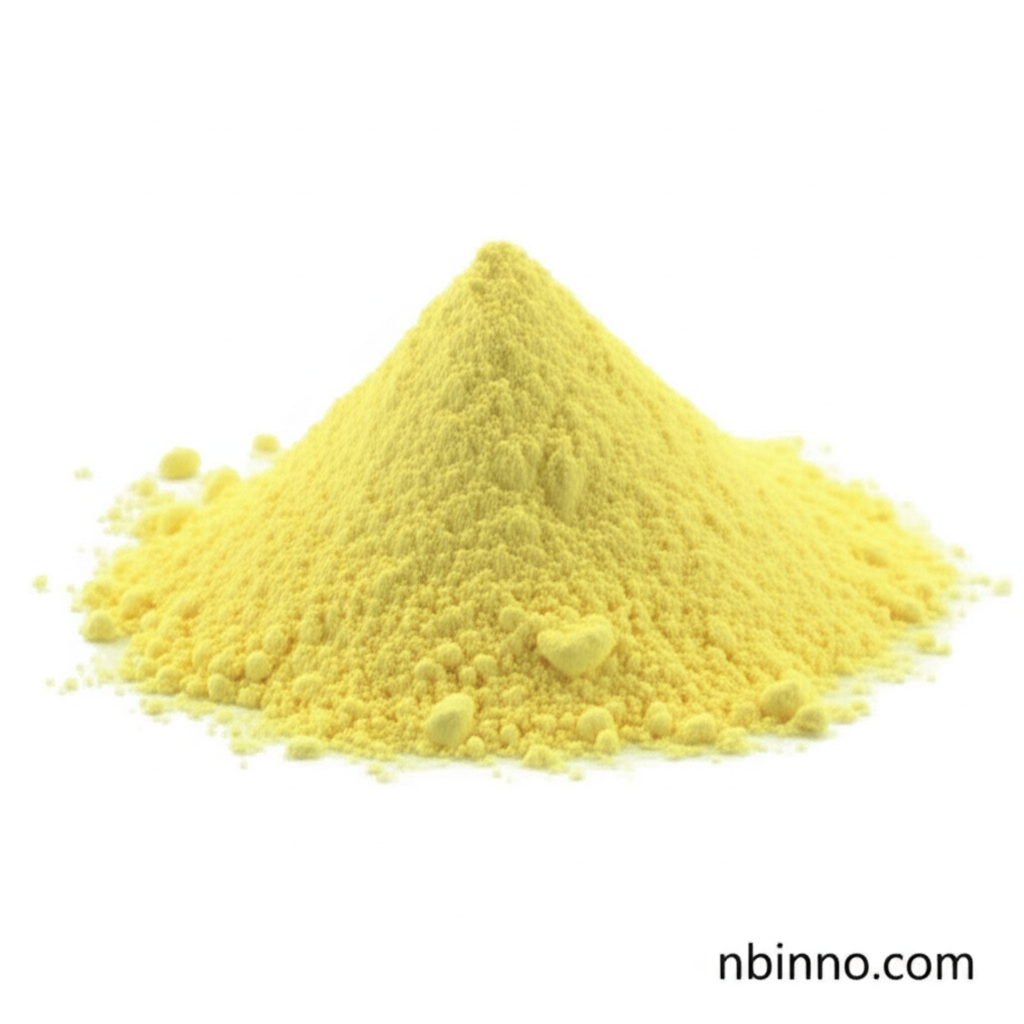2,6-Diaminopurine: A Key Intermediate for Pharmaceutical Synthesis and DNA Research
Discover the versatile applications of 2,6-Diaminopurine in pharmaceuticals, biochemical research, and beyond.
Get a Quote & SampleProduct Core Value

2,6-Diaminopurine
2,6-Diaminopurine (CAS 1904-98-9) is a crucial purine derivative renowned for its multifaceted applications in both pharmaceutical synthesis and advanced biochemical research. Its high purity, typically exceeding 98%, coupled with adherence to USP, BP, EP, and FCC standards, makes it a reliable component for critical applications.
- High Purity and Standards: This compound meets rigorous quality benchmarks like USP, BP, EP, and FCC, ensuring its suitability for demanding pharmaceutical and research applications. Exploring 2,6-Diaminopurine pharmaceutical intermediate uses reveals its critical role in drug development.
- Key Pharmaceutical Intermediate: It serves as a vital intermediate in the synthesis of important pharmaceuticals, most notably fluorodarabine, a chemotherapeutic agent used in treating leukemia and lymphoma. Understanding the 2,6-Diaminopurine pharmaceutical intermediate applications is key to appreciating its value.
- Significance in Biochemical Research: Beyond medicine, 2,6-Diaminopurine is valuable in biochemical research due to its unique structural properties and its role in DNA. Its potential to enhance DNA stability offers insights into fundamental biological processes.
- Versatile Chemical Properties: With a light yellow crystalline powder appearance and a high assay of ≥98%, this compound is known for its chemical stability and consistent performance across various applications. Investigating CAS 1904-98-9 chemical properties is essential for its effective utilization.
Advantages Provided by the Product
Exceptional Purity and Quality Assurance
Manufacturing processes for 2,6-Diaminopurine adhere to stringent GMP and SGS certifications, ensuring a product that meets global pharmaceutical and research needs, a crucial aspect when seeking reliable pharmaceutical intermediate suppliers.
Enabling Advanced Drug Synthesis
As a key component in the synthesis of chemotherapeutic agents, 2,6-Diaminopurine directly contributes to advancements in cancer treatment, highlighting its importance in the field of anticancer drug intermediates.
Insight into DNA Functionality
The compound's role in biochemical research, particularly its influence on DNA stability, opens avenues for understanding genetic mechanisms and potential biotechnological applications. Its role in DNA stability is a subject of ongoing scientific interest.
Key Applications
Pharmaceutical Intermediate
Crucial for the synthesis of complex pharmaceutical compounds, including advanced chemotherapeutics. This aligns with the demand for high-quality pharmaceutical intermediate suppliers.
Biochemical Research
Used in studies related to genetics and molecular biology, particularly its impact on DNA structure and function, demonstrating its value in biochemical research chemicals.
Organic Synthesis Building Block
Serves as a versatile building block in various organic synthesis pathways, contributing to the creation of novel compounds. The exploration of 2,6-Diaminopurine synthesis methods is ongoing.
Prebiotic Chemistry Studies
Its presence in meteorites and role in DNA lesion repair under prebiotic conditions makes it significant for understanding the origins of life. This connects to the field of prebiotic chemistry innovations.
